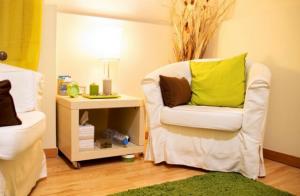Understanding Anxiety and learning skills to regulate it
The anxiety it's a normal human emotion that everyone experiences from time to time. However, for some people, it can become overwhelming, causing negative effects on their mental and physical health.
In this sense, Anxiety can manifest itself in many ways, including feeling restless, irritability, difficulty concentrating, and sleep disorders. It can also cause physical symptoms such as sweating, increased heart rate, and muscle tension. It triggers the body's stress response, also known as the "fight or flight" response. This response is a survival mechanism that prepares the organism to react quickly to a perceived threat.
But when anxiety becomes chronic, the stress response can have negative effects on the body. Chronic stress can cause increased inflammation, weaken the immune system, and increase the risk of developing chronic diseases such as heart disease, diabetes, and depression.
- Related article: "Emotional management: keys to master your emotions"
The role of mindfulness in managing anxiety
Mindfulness is a technique that consists of pay attention to the present moment without making moral assessments about what is happening, without judging it. It allows you to observe your thoughts and emotions without being overwhelmed by them. Mindfulness can be an effective tool for regulating anxiety by helping you become aware of and respond to your thoughts and feelings in a more constructive way.
Research has shown that mindfulness-based interventions can reduce anxiety symptoms and depression. One study found that people who participated in an eight-week stress reduction program based on mindfulness experienced a significant reduction in anxiety symptoms compared to those who did not participated.
- You may be interested in: "Types of Anxiety Disorders and their characteristics"
Types of Mindfulness Practices to Relieve Anxiety
There are many different types of mindfulness practices that can help you alleviate anxiety. One of the most popular is mindfulness meditation. It consists of sitting quietly and focusing attention on the breath or other bodily sensations. When the mind starts to wander, just bring your attention back to your breath..
Other mindfulness practices include body scan meditation, which involves focusing your attention on each part of the body, and conscious walking, which consists of concentrating on the sensations of the feet to the walk.
The power of breathing techniques in reducing anxiety
Breathing techniques are another effective tool to regulate anxiety. When you're anxious, your breathing can become shallow and rapid, which can make you feel even more anxious. By slowing down your breathing and breathing more deeply, you can activate the body's relaxation response, which can help reduce anxiety.
Let's look at different breathing exercises to relieve anxiety.
A simple breathing exercise is the 4-7-8 technique.. To do this, inhale through your nose for a count of four, hold your breath for a count of seven, and exhale through your mouth for a count of eight. Repeat this cycle four times.
Another breathing exercise is belly breathing, which consists of breathing deeply into the belly instead of breathing shallowly into the chest. To do this, place one hand on your chest and the other on your belly. Inhale deeply through your nose, feeling your belly push your hand out. Breathe out slowly through your mouth, feeling your belly drop.
- Related article: "Breathing exercises to relax in a moment"
The benefits of physical activity in regulating anxiety
Exercise is another effective tool to regulate anxiety. Physical activity releases endorphins, which are natural mood boosters. Exercise also helps reduce muscle tension, and can improve sleep quality.
Research has shown that regular exercise can reduce symptoms of anxiety and depression.. One study found that people who regularly engaged in moderate-intensity exercise had a 20% reduction in anxiety symptoms compared to those who did not exercise.
How to Incorporate Exercise into Your Anxiety Regulation Routine
You don't have to become a gym rat to reap the anxiety-regulating benefits of exercise. Any type of physical activity can help, whether it's dancing, swimming, or even gardening.. The key is to find something that you like and that you can practice regularly.
If this is your first time exercising, start slowly and gradually increase the intensity and duration. Try to get at least 30 minutes of moderate-intensity exercise on most days of the week.
The importance of sleep in the regulation of anxiety
Sleep is essential for good mental and physical health. When you are anxious, it can be difficult to fall asleep or stay asleep, which can exacerbate your anxiety symptoms. Lack of sleep can also lead to increased irritability and difficulty concentrating.
Let's see several tips to sleep better and reduce nighttime anxiety.
Establishing a regular sleep routine can help you fall asleep better and reduce nighttime anxiety. This includes going to bed and getting up at the same time every day, avoiding caffeine and alcohol before bed, and creating a relaxing sleep environment.
Other tips to reduce nighttime anxiety are to practice relaxation techniques before going to bed, such as deep breathing or progressive muscle relaxation, and avoiding stimulating activities such as watching television or using electronic devices in the bedroom.
conclusions
It's key combine different anxiety regulation techniques for optimal results.
Anxiety regulation requires a holistic approach that includes a combination of different techniques. Mindfulness, breathing exercises, exercise, and sleep are important tools for regulating anxiety. By incorporating these techniques into your daily routine, you can reduce anxiety symptoms and improve your overall mental and physical health. Remember that anxiety regulation is a process and it may take time to find the combination of techniques that works best for you.
Be patient and persistent, and don't be afraid to seek professional help if your anxiety interferes with your daily life.
And since all this is easier said than done, I suggest you contact me to explain your particular situation to me and thus be able to better accompany you in your process of regulation of the anxiety.

